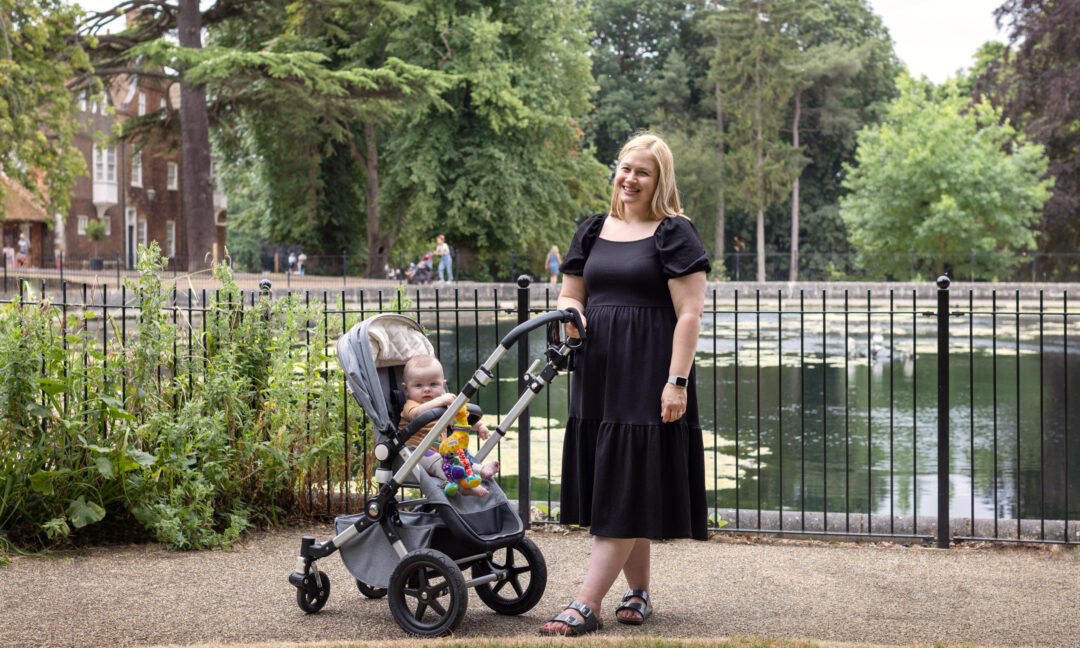Maternity and Paternity Leave – your employment rights explained
These blogs are written by third party guest authors to help provide additional insight and perspective.
By Minal Backhouse, Managing Director and Head of Employment Law at Backhouse Solicitors. Minal’s team at Chelmsford-based Backhouse Solicitors are experts in employment law and pride themselves on offering friendly and easy-to-understand employment law advice. This guest post is part of a series of blog posts aimed at helping parents with their mortgage concerns.
Buying a house and having a child are two of the biggest life-changing decisions that you are ever likely to make. But what if both happen at the same time and you need to move house after having a baby? In this article we look at how the law protects your job while you are on parental leave so you can move house knowing your finances are secure.
Outgrowing your living space
A growing family inevitably needs more space. It might be that you need to contemplate extra bedrooms, a play area, or a bigger dining area. Your current property may be adaptable, or maybe your home that once seemed just right is now bulging at the seams. Then there are school catchment areas to consider, and proximity to a reliable friend or family member to babysit. It could mean that a house move might be the solution.
Affording your move
Of course, one of the biggest fears that you may have when it comes to having children and moving is financial stability. With the added expense of more mouths to feed, stability of employment and family income is key to ensuring that you can afford the expense of a new property, should you choose to make the move. This includes the costs of moving home, the larger bills that come with a bigger house, keeping up with mortgage repayments but before all of this, comes the task of being accepted for a mortgage or remortgage in the first place.
Is your job secure?
To complicate matters, at least one parent is likely to be taking leave when your new child arrives. Maternity leave is most common, and we focus on it here, but paternity, shared parental and adoption leave are also possible and have similar rights. Either way, your financial situation is likely to be more challenging than it was before, and job security might be at the front of your mind.
In the rest of this article, we will set out some of your rights in respect of maternity, paternity, and other parental leave with the aim of making your decisions easier once you know where you stand.
What is maternity discrimination?
Maternity/pregnancy is a protected characteristic under the Equality Act 2010, and as such there are laws in place to protect you from workplace discrimination. In practice this means that it can be unlawful for you to be treated differently from your work colleagues because of pregnancy or childbirth. This applies before childbirth, while on maternity leave and when you return to work.
If your employer ignores these discrimination laws, you could potentially make an Employment Tribunal claim against them. There is no upper limit on the size of discrimination claims, but in practice most awards are between £900 and £49,300.
The right to take time off for appointments
Taking time out of work for appointments during the early stages of pregnancy might be daunting for some, especially if it is your first time. Should you have any concerns, please be assured that the right to take leave for the purposes of these appointments is protected by law and you are entitled to take this time if needed. Were your employer to dismiss you for doing so it is likely to be considered an automatically unfair dismissal by an Employment Tribunal. This could lead either to financial compensation, or in some cases reinstatement in your job if that is what you request.
The right to take maternity Leave
The most widely understood part of the of the pregnancy/maternity process is the legal right to take up to 52 weeks of maternity leave in the lead up to and following childbirth.
Maternity leave can begin up to 11 weeks before the expected date of childbirth, unless your baby is born early. The first 26 weeks are called Ordinary Maternity Leave and the next 26 weeks Additional Maternity Leave. Taking this time off is optional apart from a compulsory two week period following childbirth (or four weeks if you work in a factory).
You are entitled to at least 90% of your normal average pay for the first 6 weeks of Maternity leave, and then Statutory Maternity Pay for the remainder. You may be entitled to more depending on any contractual policies that your employer has in place.
The right to return to work
The right to return to work when your maternity leave ends is very strongly protected in employment law, however, the protection does depend on how long you are on leave:
- during Ordinary Maternity Leave you have the right to return to your job on the same terms
- during Additional Maternity Leave you also have the right to return to your job on the same terms, but if this is no longer possible because of organisational changes you may be offered a similar job where the terms of employment must be no worse than before (regarding pay, benefits, holiday, location and seniority).
You can, of course, agree to return to a different role if you wish, but this cannot be forced upon you by your employer.
Strong legal protections
The key point is to be assured that you are strongly protected by law from discrimination, unfair treatment and being pushed out of your job as a result of getting pregnant or taking maternity leave. That is not to say that it is impossible to lose your job, but a very thorough process would be needed and there would need to be effectively no other option, otherwise the dismissal will almost certainly be considered unfair.
In this article we have focused specifically on maternity leave but many of the same protections apply to paternity, adoption and shared parental leave.
What to do if you are subject to unfair treatment
If you think that you are being treated unfairly, or your maternity rights are not being properly upheld, you should take legal advice from an employment law specialist as soon as possible. There are strict deadlines for making Employment Tribunal claims, so it is best to act early just in case.
Guest post supplied by Backhouse Solicitors. By publishing and hosting information from guest authors on the Suffolk Building Society website this does not constitute an affiliation with, nor a recommendation of, any third party organisation. We recommend that if the content of this article applies to you, or if you require further information on the particular topic it raises, that you seek specialist advice.


















